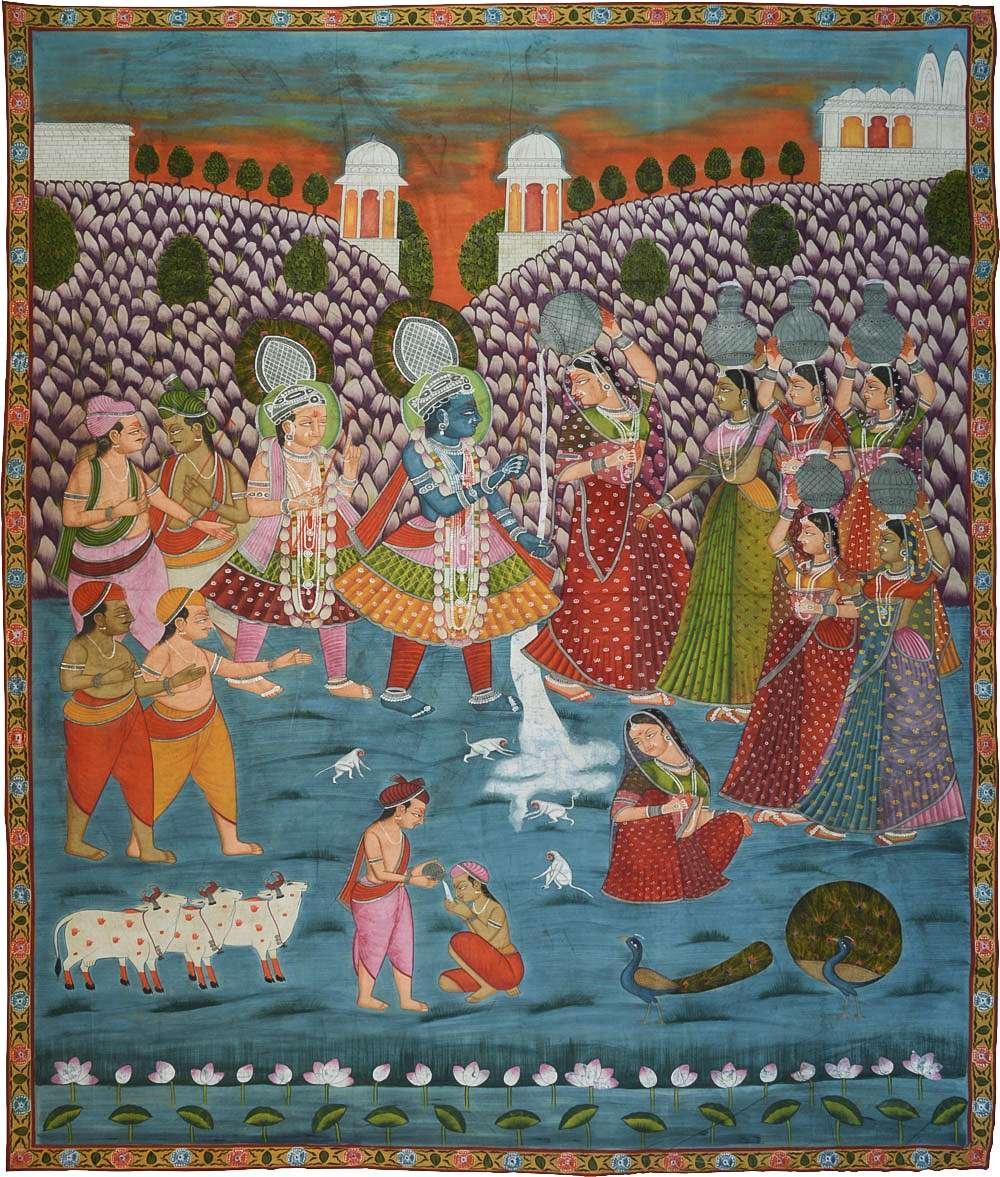The Birth of a Star
Krishna is the most endearing of Gods. His life, as told in the songs, ballads, and epics of India, speaks of the life-affirming thought that defines Indian spirituality. Is there any other God that embodies the joys of life as gracefully, playfully, and as captivatingly, as Krishna? It must come as no surprise then, that he continues to command the love and imagination of so many people.
Janmashtami, Krishna’s day of birth, is the first of many stories that define his time amongst the mortals. The torrential rains that herald his coming into this world, are reflective of the turmoil the people live with, and the ensuing calm, a reflection of the new dawn soon to follow. Through the course of his childhood, he vanquishes many a demon, ultimately slaying the demon king, Kamsa.
Of Krishna, there are as many stories as there are stars in the sky. What makes them so enchanting and captivating is that we learn the simple lessons of life in these stories. His playful nature tells us to not take life too seriously, even if there are much larger things at play.
To celebrate Krishna is to celebrate love.
From the divine love of his consort Radha, to the spiritual longing of Mirabai (the Rajput queen who renounced royal life for the Lord), Krishna has won many hearts, both within and without his leela (act or play). Mirabai’s poems are a testament to Krishna’s emphasis on bhakti (devotion) as a way to salvation.
COME TO MY PAVILLION
Come to my pavilion, O my King. I have spread a bed made of delicately selected buds and blossoms, And have arrayed myself in bridal garb From head to toe. I have been Thy slave during many births, Thou art the be-all of my existence. Mira's Lord is Hari, the Indestructible. Come, grant me Thy sight at once.
— Mirabai
Utterly, Butterly, Simple.
It is no secret that butter was Krishna’s mainstay in Gokul. That is why, on Janmashtami, the special offerings (prasadam) include a sumptuous serving of butter with flattened rice and jaggery.
And as we savour the concoction, we reminisce about the story of butter tax which was levied by Krishna. Krishna made sure to collect his dues from the Gopis (cow herds) of the quaint village by any means necessary - persuasion or coercion. Yet he remained dearly loved by all. If that isn’t evidence of how good intentions outweigh actions, what is?
Today, in parts of India, particularly in Gujarat and Maharashtra, the Dahi Handi (Pot of Curd) is yet another imitation of Krishna’s never-ending antics to have butter. Just as Krishna relied on the support and strength of his brother and friends, during the game of Dahi Handi, boys and men find new brethren among strangers, as they give each other a hand or leg up in pursuit of a common goal.
From the confines of high art, to calendar portraits, and Gokul Sandal tins, Krishna truly permeated modern life in all its nooks in the subcontinent. His stories are so popular that the one about butter tax is captured in a beautiful painting titled “Daan- Lila” in the Harvard Art Museum.
This Janmashtami, we urge you to revel in the simplicity of the Lord’s ways and persevere on this journey that is life, as you celebrate both the little things, and the big things.



